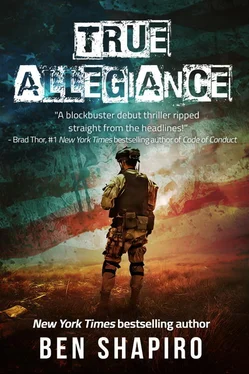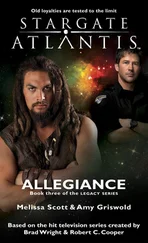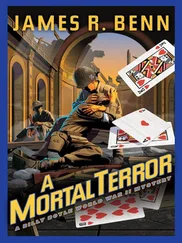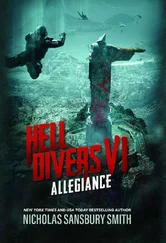Today, he would make that call. And he would do so with the military as a backdrop.
Using the military for the backdrop would force the militarists to back down—he’d already planned to talk about how he would no longer send Americans to die in foreign lands. He’d retaliate against aggression, and his retaliation would be uncompromising and powerful. But there would be no invasions, no military occupations. America needed to rebuild, and these men and women were just the heroes to do it.
The speech poll tested well. The aesthetics had been planned to the most minute detail.
Preparations for the event had begun nearly a day in advance. The military set up bleachers to hold thousands of troops from across the country. Prescott insisted that the most racially diverse troops be placed directly behind him for the cameras, and had them all prescreened for political sensibilities. He didn’t want any frowning faces to take away from this victory.
Security was heavy, of course. The bomb squads were out, and all the surrounding buildings were covered by sniper teams. The president’s security team did worry about the massive crowd expected at the event—the president would be greeted by thousands of cheering New Yorkers. He knew how well waves of applause played on television. Plainclothes officers would be patrolling the crowd to check for a Taxi Driver –type lone wolf attacker.
The forecast for the weather: mid-sixties, clear, not a cloud in the sky. Mark Prescott couldn’t have planned it better.
Today, Mark Prescott would finally change America.
Brett and Ellen sat together at the president’s hotel. They sat close, their foreheads touching, their hands clasping desperately, so hard the knuckles hurt. Ellen had sobbed quietly into Brett’s shoulder after Prescott left for a few moments. Now they simply held each other.
“Brett,” she finally said, “I thought I’d never see you again.”
“Well, I’m sure you’re not too happy to smell me again.”
In spite of herself, she laughed. Brett always could make her laugh. “Seriously, honey, you know I want you to be with me more than anything, that I can’t stand more of this separation, more of this chaos. I want to take Prescott’s offer too. But we just can’t.”
He laughed softly. “I know.”
“So why did you tell him you’d think about it?”
“You’re too damn honest, sweetheart. You always were.” He leaned forward and whispered into her ear, his voice deadly earnest. “Ellen, we need to get you out of here. We need to get you out of the city. Prescott is a damn fool. Omari had Hassan killed. He had Mohammed killed. They’re planning something big, I know that. I saw one of their men run out of Mohammed’s apartment with a bag. It took some prodding, but Omari’s man told me they were planning something at the harbor.”
“But Brett, why just me? Why can’t you come with me?”
He shook his head. “Like you said, sweetheart, I just can’t. I can’t just abandon things. I can’t.”
She took his chin in her hands. “Honey,” she said, “I never thought you would. It’s why I love you.” She leaned forward and kissed him. Then they stood, hand in hand. Brett knocked on the door. Tommy Bradley opened it.
“We’re ready to talk to the president,” he said.
“We’ll meet him at the airport,” said Bradley. “He’s scheduled to leave from there as soon as his speech ends. Right this way.”
The crowd began filing into the streets near the harbor two hours in advance. The security team had expected anywhere between five and ten thousand New Yorkers to turn out—but as the minutes passed, it became clear that double or triple that number had turned out. They needed something: a feeling of unity, a feeling of togetherness, a feeling of being a part of something optimistic again.
They came from all backgrounds: black, white, Hispanic, Asian. They were all ages: the elderly came in their wheelchairs, the young pushing strollers. They came bearing American flags and signs: “GOD BLESS THE USA” and “STAND STRONG” and the takeaway line from Prescott’s moment , “TOGETHER WE WILL RISE.” They stood in the heat, sweating, vendors moving through the crowds, tossing bottles of water and popcorn and dirty water dogs. The whole day had the feel of a mass picnic.
The throng grew, and then grew again. It poured out from the harbor area into the streets. It filled blocks.
Soledad casually slipped her way through the crowd.
Being dead certainly helped her escape scrutiny, she observed wryly. Aiden would have appreciated the irony. A few blocks away, she knew, Ricky O’Sullivan waited with the car. Her chances of escape were slim, of course. But she also knew that assassination attempts rarely ended with the assassin immediately detained: Oswald had made it to a theater; Booth had run for days. They’d catch her eventually, she figured, but they’d have to revise their estimate of her death first to identify her.
Aiden’s death had changed her, hardened her, she knew. She could fob off the California water crisis as political bureaucrats playing games. She could even pretend that Ricky O’Sullivan had been railroaded by a race-baiting system. But the drone attack—that was on Prescott. She had voted for Mark Prescott the first time. His promises of a better America, a more caring America, appealed to her.
Then, it turned out, caring was just a cover for control.
The drone had targeted both her and Ricky, but they’d made it to the trees in time. The military must have miscalculated; for whatever reason, she and Ricky had been stunned to see headlines touting their deaths. They’d hunkered down in the woods for a few days; by the time they made it back to camp, the group had disbanded, disappeared.
That night, as they sat by the fire in a country that had tried to kill both of them, Soledad broke down and cried. It was the first time she could remember, at least since the death of her parents. It wasn’t that Aiden had been so wonderful—there were times, she knew, she couldn’t stand him. But he represented hope to her in a way difficult to quantify. She believed in the inherent goodness of the system, despite everything, and Aiden represented that: a system made of good people who, when push came to shove, would stand against the powerful on behalf of the powerless.
And then the powerful killed him.
Meanwhile, after Aiden’s death, Ricky snapped back into the zombie state he’d been in before the rescue. He felt like a man apart, alone. The headlines about Soledad didn’t surprise him—of course the media and many Americans would celebrate her death. It was the easiest thing to do. Better to cheer the downfall of a lone terrorist than to hold up her cause for understanding.
He had been stunned, however, by the triumphalism with which the media treated his own death. He’d been acquitted , for God’s sake. He’d tried to serve his community. And there, on television, were faces from his hometown, Detroit, smiling at the news of his death. And there was Mark Prescott, telling the press that the killing showed that Ricky O’Sullivan trafficked in terrorism, and the killing closed the door on a “sordid incident sullying our national unity.”
Something had to change. He knew it. Whether Soledad was right or wrong no longer mattered to him. Something had to wake people up.
They had turned their motorcycles toward New York City.
Soledad felt the handgun in her purse. It was a 3D printed plastic gun; she’d bought it from a gun enthusiast in Ohio. He’d been a nutcase, obsessed with weaponry, with an industrial-grade printer in his garage. Prior 3D printed guns had been made with a few key pieces of metal to absorb the explosion of the gunpowder in the bullet—but this guy had perfected a method of making specialized bullets with a thicker shell that could absorb the brunt of the explosion. That meant no metal in the gun at all, just metal in the bullet. The plastic gun could be hidden in the bottom of her purse and wouldn’t set off a metal detector. And she could hide the bullet virtually anywhere. She chose to embed it in a pair of gaudy, dangling earrings.
Читать дальше












